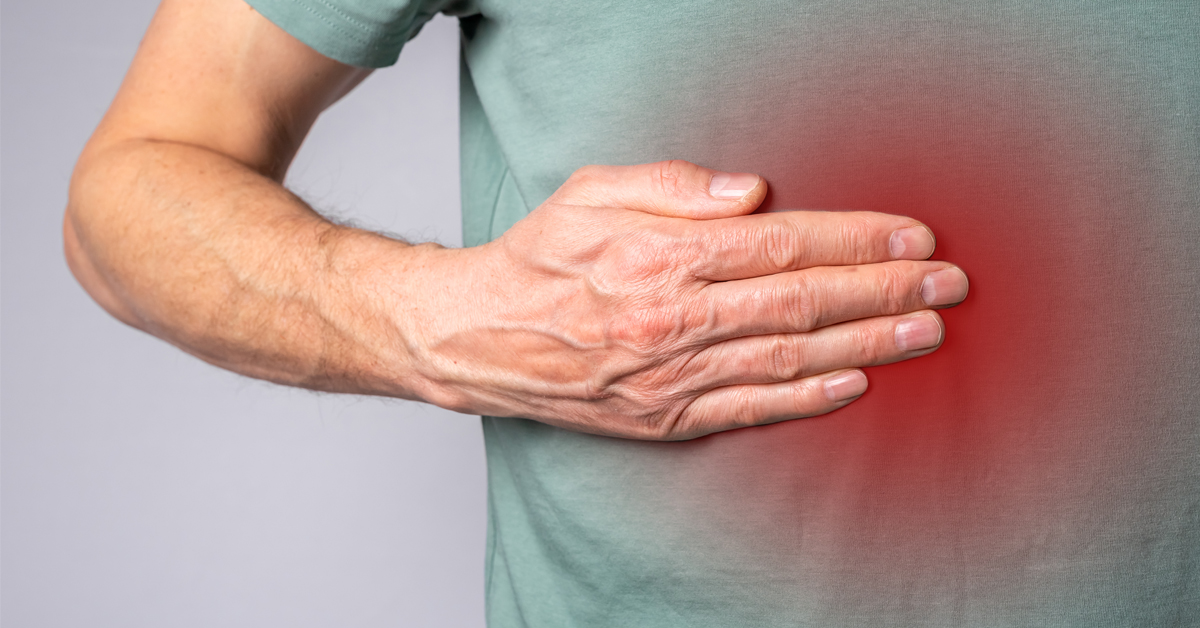
Listen to Your Body: Early Warning Signs of Gallbladder Cancer Revealed
Gallbladder cancer is a relatively rare but aggressive form of cancer that often goes undetected until its later stages. This is due to its subtle early symptoms and the gallbladder’s location, which makes it challenging to diagnose in its initial phases. However, recognising early warning signs and understanding potential risk factors can lead to earlier intervention and significantly improved outcomes. Knowing when to seek medical attention is critical for timely diagnosis and treatment.
What is Gallbladder Cancer?
Gallbladder cancer develops when malignant cells form in the gallbladder’s tissues. Located beneath the liver, the gallbladder stores bile, which aids in digesting fats. While gallbladder cancer is not common, its effects can be severe, particularly when detected late. Early diagnosis is key to improving prognosis, making awareness of symptoms and risk factors vital.
Early Symptoms to Watch For
Recognising the early symptoms of gallbladder cancer can be lifesaving. Common signs include:- Abdominal Pain
Persistent pain, especially in the upper right side of the abdomen.
- Nausea and Vomiting
These may occur frequently without an apparent cause.
- Unexplained Weight Loss
Sudden, significant weight loss should never be ignored.
- Jaundice
Yellowing of the skin and eyes, caused by bile buildup.
- Bloating and Discomfort
A feeling of fullness even after eating small amounts.
Since these symptoms are often mistaken for other less severe conditions, seeking medical advice early is essential if they persist or worsen.
Risk Factors for Gallbladder Cancer
Understanding risk factors can help in assessing vulnerability to gallbladder cancer. Some of the key factors include:These are among the most common contributors, causing chronic inflammation.
- Age and Gender
Women and individuals over 50 are at higher risk.
- Obesity
Excess body weight increases the likelihood of gallbladder-related issues.
- Family History
A genetic predisposition can elevate risk levels.
- Chronic Gallbladder Infections
Long-term inflammation can lead to cellular changes that increase cancer risk.
- Lifestyle Choices
Smoking and a diet high in unhealthy fats are additional risk factors.
Regular check-ups and a healthy lifestyle can mitigate these risks.
Diagnosis: The Importance of Early Detection
Accurate diagnosis is crucial for effective treatment. If gallbladder cancer is suspected, doctors may recommend:- Imaging Tests
Ultrasounds, CT scans, and MRIs provide detailed views of the gallbladder.
- Blood Tests
To identify markers that might indicate cancer or liver dysfunction.
- Biopsy
A sample of gallbladder tissue is examined for the presence of cancerous cells.
Provides high-resolution images for a more accurate diagnosis.
These diagnostic tools help in determining the stage of cancer and planning the most effective treatment strategy.
Treatment Options for Gallbladder Cancer
The treatment plan depends on the cancer stage, patient health, and other individual factors. Options include:- Surgery
The most effective treatment for early-stage gallbladder cancer. Minimally invasive techniques like laparoscopic surgery offer faster recovery and reduced complications.
- Chemotherapy
Used to kill cancer cells and prevent their spread.
- Radiation Therapy
Often combined with chemotherapy for advanced cases.
- Targeted Therapy
Focuses on specific molecules to stop cancer growth.
Early diagnosis increases the likelihood of successful surgical treatment, making awareness of symptoms critical.
The Role of Minimally Invasive Surgery
Minimally invasive surgery, such as laparoscopic or robotic-assisted techniques, is revolutionising the treatment of gallbladder cancer. These methods offer numerous advantages:
- Faster Recovery
Patients experience less pain and return to normal activities more quickly.
- Lower Risk of Complications
Smaller incisions reduce the risk of infection and scarring.
- Enhanced Precision
Advanced robotic systems allow surgeons to operate with exceptional accuracy.
These advancements improve patient outcomes and quality of life, even for complex cases.
Prevention: Steps to Lower Your Risk
While not all cases of gallbladder cancer can be prevented, adopting healthy habits can significantly reduce risk:- Maintain a Healthy Weight
Regular exercise and a balanced diet can lower inflammation and improve overall health.
- Avoid Smoking
Smoking contributes to numerous cancers, including gallbladder cancer.
- Treat Gallstones Early
Addressing gallstones and other gallbladder conditions can prevent long-term complications.
- Regular Check-Ups
Routine health screenings help in early detection of abnormalities.
These steps can help in reducing the risk of gallbladder-related issues, including cancer.
Living with Gallbladder Cancer: Support and Management
A diagnosis of gallbladder cancer can be overwhelming for both patients and caregivers. Emotional and psychological support is just as important as medical treatment. Support groups, counselling, and a strong care network can make the journey more manageable. Open communication with healthcare providers ensures that all concerns are addressed, providing clarity and confidence in treatment decisions.
Recognising the Signs for Early Action
Gallbladder cancer is a serious condition, but early detection and timely intervention can make a significant difference in outcomes. Understanding the symptoms, recognising risk factors, and seeking expert care are crucial steps in combating this disease. Patients in Chennai can consult Dr Santosh Anand, a leading surgical gastroenterologist specialising in minimally invasive techniques. With his expertise and commitment to patient-centred care, Dr Santosh Anand ensures the best possible outcomes for those navigating the challenges of gallbladder cancer.

